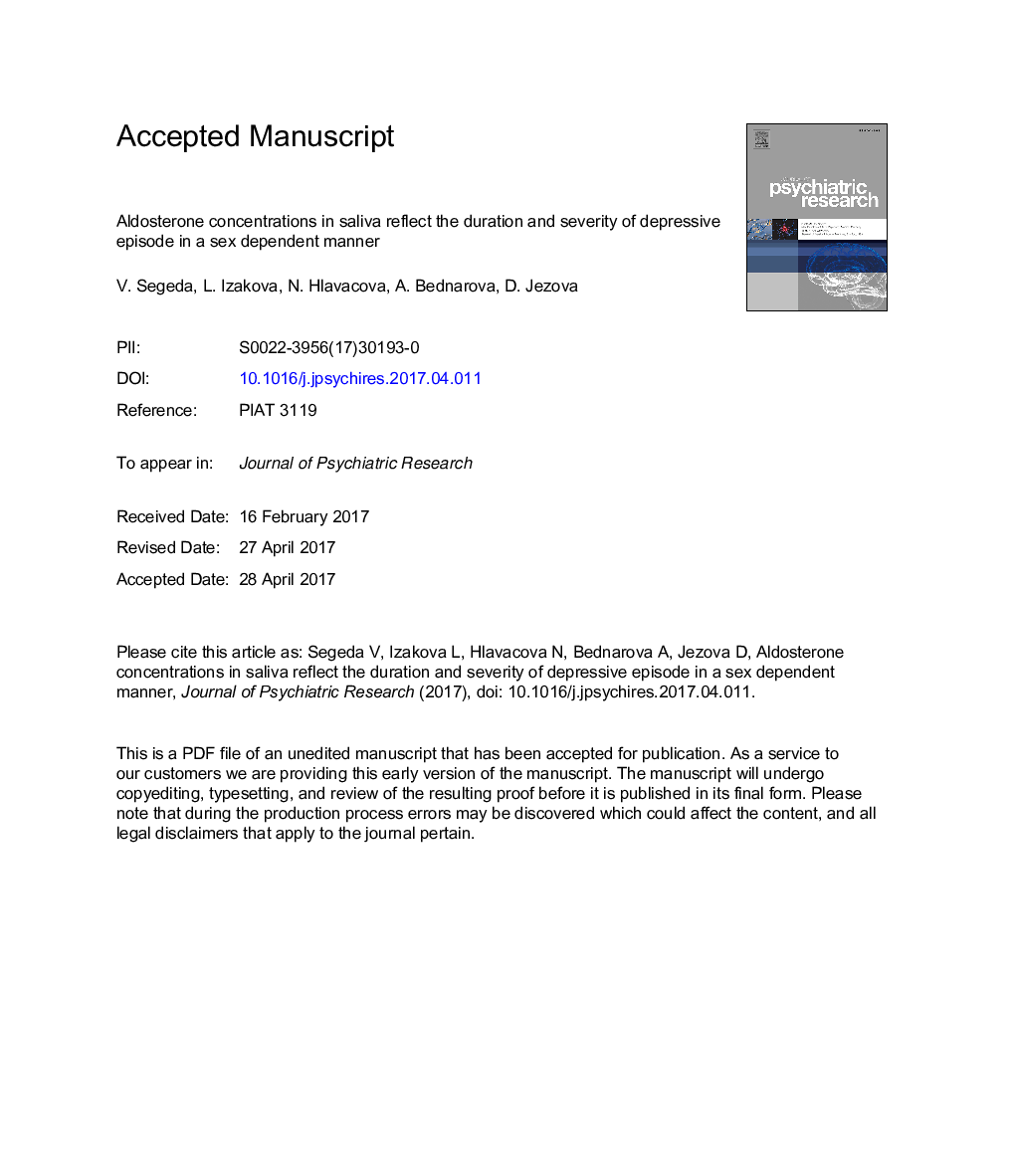| Article ID | Journal | Published Year | Pages | File Type |
|---|---|---|---|---|
| 4932079 | Journal of Psychiatric Research | 2017 | 21 Pages |
Abstract
Evidence is accumulating that aldosterone may exert central actions and influence mental functions. The aim of the present study was to test the hypothesis that major depressive disorder affects the diurnal variation of salivary aldosterone and that aldosterone concentrations reflect the duration and severity of the depressive episode in a sex dependent manner. The sample consisted of 60 patients (37 postmenopausal women, 23 men) with major depressive disorder. Patients were examined two times, in acute depressive episode (admission to the hospital) and after reaching clinical remission (discharge). The samples of saliva were taken by the patients themselves twice a day (8.00-9.00Â h in the morning and in the evening). Aldosterone concentrations were significantly higher in women compared to men and were significantly higher at the time of admission to the hospital compared to those at the discharge. Morning but not evening salivary aldosterone concentrations reflected the length of the depressive episode in women as well as the severity of the disorder in both sexes. Moreover, the patients with depression failed to exert known daily rhythmicity of aldosterone release. The present study brings several pieces of evidence suggesting the association of aldosterone with the pathophysiology of depression. Salivary aldosterone concentrations appear to reflect the outcome, the duration and the severity of the depressive episode in a sex dependent manner.
Related Topics
Life Sciences
Neuroscience
Biological Psychiatry
Authors
V. Segeda, L. Izakova, N. Hlavacova, A. Bednarova, D. Jezova,
